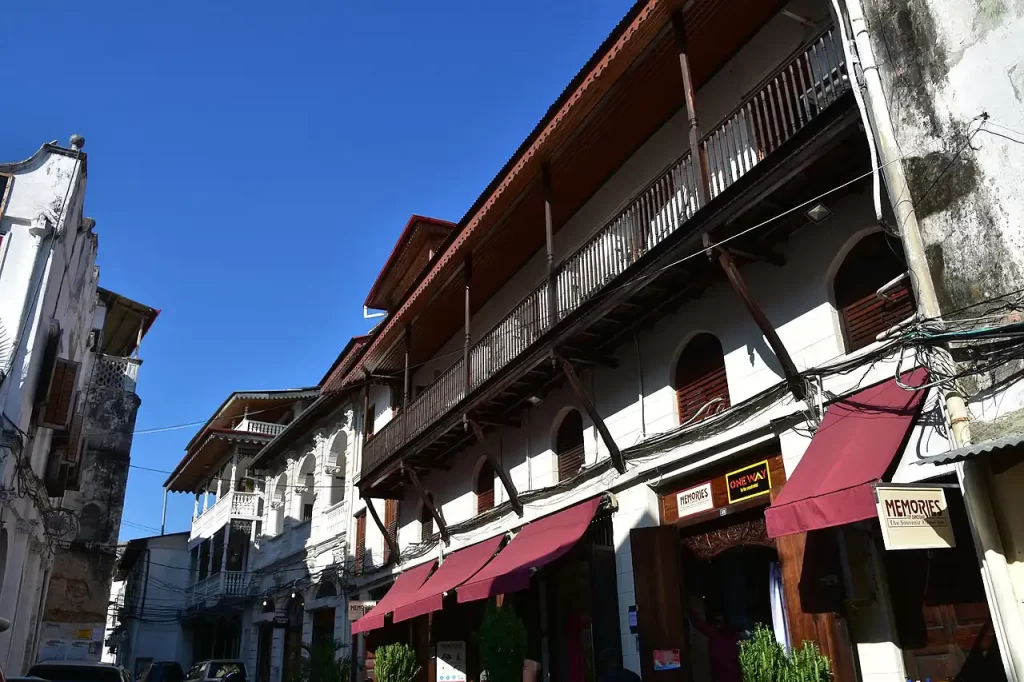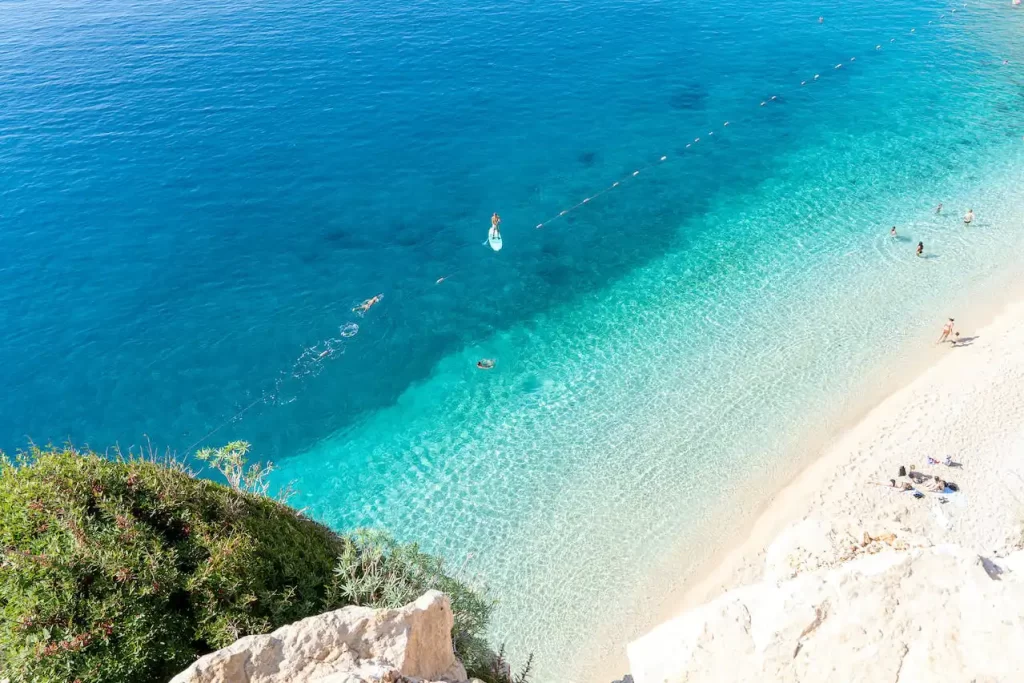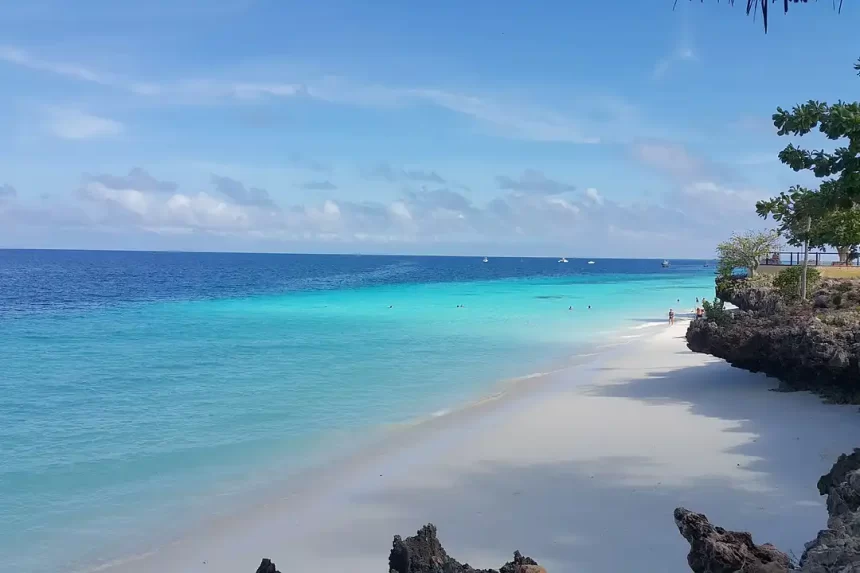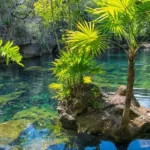Overview of Zanzibar, Tanzania
Zanzibar, an archipelago off the coast of Tanzania, is renowned for its captivating blend of cultural history, natural beauty, and exotic experiences. Consisting of several islands, the two largest being Unguja (commonly referred to as Zanzibar Island) and Pemba, it is a semi-autonomous region of Tanzania.
Stone Town: A Cultural Melting Pot

Stone Town, the historical core of Zanzibar, stands as a testament to the island’s rich and diverse history. This UNESCO World Heritage site is an architectural wonder, blending influences from Arab, Persian, Indian, and European styles. The town’s narrow, winding alleys lead to bustling bazaars, where travelers can find an array of local crafts, textiles, and jewelry. Key landmarks include the Sultan’s Palace, the House of Wonders, and the Old Fort. The town’s historical significance is further highlighted by its role in the East African slave trade, with sites like the Slave Market and Anglican Cathedral providing poignant reminders of this dark chapter in history. Exploring Stone Town offers a deep dive into Zanzibar’s complex cultural tapestry, making it a must-visit for history enthusiasts and culture seekers alike.
Pristine Beaches: Sun, Sand, and Sea

Zanzibar’s beaches are a slice of paradise, known for their pristine white sands and crystal-clear turquoise waters. North coast beaches like Nungwi and Kendwa are perfect for those seeking sun-soaked relaxation and vibrant nightlife. These beaches offer excellent facilities for swimming, sunbathing, and a variety of water sports. On the east coast, Paje and Jambiani attract kitesurfing enthusiasts with their ideal wind conditions. The southeast coast is also renowned for its traditional fishing villages, where visitors can immerse themselves in local life. Whether it’s lounging under the sun, engaging in water sports, or simply enjoying the stunning sunset views, Zanzibar’s beaches cater to all kinds of beach lovers.
Spice Tours: Aromatic Adventure

Zanzibar, famously known as the “Spice Island,” offers an aromatic journey through its lush spice farms. The island played a significant role in the historic spice trade, and today, visitors can embark on guided tours to learn about the cultivation and uses of various spices like cloves, nutmeg, cinnamon, and black pepper. These tours often include cooking demonstrations and opportunities to purchase fresh spices. Beyond their culinary uses, these spices are integral to Zanzibar’s history and economy. Spice tours not only provide a sensory experience but also offer insights into the local culture and traditions surrounding these aromatic treasures.
Underwater Exploration: Snorkeling and Diving

The waters surrounding Zanzibar are a haven for marine enthusiasts, boasting some of the most vibrant coral reefs in the world. Areas like Mnemba Atoll and the reefs around Pemba Island offer exceptional snorkeling and diving experiences. These underwater sanctuaries are home to a diverse array of marine life, including turtles, dolphins, and numerous species of tropical fish. Dive sites cater to all levels, from beginners to experienced divers, with professional guides ensuring a safe and memorable experience. Exploring these underwater worlds reveals the incredible biodiversity of Zanzibar’s marine ecosystem, making it a top destination for snorkelers and divers alike.
Jozani Forest: A Natural Haven

Jozani Forest, part of the Jozani Chwaka Bay National Park, is a must-visit for nature lovers. This verdant forest is home to the endangered red colobus monkey, a species endemic to Zanzibar. The forest also hosts a variety of other wildlife, including butterflies, birds, and small antelopes. The park offers guided walks through the forest and mangrove boardwalks, allowing visitors to explore the diverse flora and fauna up close. The conservation efforts in Jozani are crucial in preserving these unique ecosystems and species. A visit to Jozani Forest is not only a chance to witness these rare creatures but also an opportunity to learn about the conservation challenges and efforts on the island.
Engaging with Local Culture
Zanzibar’s cultural scene is as vibrant as its history. The island’s unique blend of African, Arab, Indian, and European influences is evident in its music, dance, and cuisine. Traditional Swahili dishes, like biryani and urojo, reflect this cultural melting pot. Taarab music, a local genre blending Swahili tunes with diverse influences, provides a melodious backdrop to the island’s atmosphere. Visitors can engage with the local culture by visiting villages, participating in cooking classes, and attending cultural performances. This cultural immersion offers a deeper understanding of the island’s heritage and the daily lives of its people.
Festivals: Celebrating Zanzibar’s Heritage

Zanzibar hosts several vibrant festivals throughout the year, celebrating its rich cultural heritage. The Zanzibar International Film Festival showcases films from across Africa and the Indian Ocean region, while the Sauti za Busara music festival features a wide range of African music, attracting artists and audiences from around the world. These festivals not only provide entertainment but also serve as platforms for cultural exchange and understanding. They are a testament to the island’s vibrant arts scene and its role as a cultural hub in the region.
Accommodations: From Luxury to Budget
Zanzibar offers a diverse range of accommodations to suit all preferences and budgets. Luxury resorts on the beachfront provide exclusive amenities and breathtaking views, while mid-range hotels offer comfortable and affordable options. For travelers on a budget, guesthouses and hostels provide basic yet charming accommodations, often run by local families. The island’s hospitality sector caters to different styles of travel, whether one seeks luxury, comfort, or a more authentic local experience.
Travel Tips: Making the Most of Your Visit
When visiting Zanzibar, it’s important to respect local customs and traditions. Dressing modestly and being culturally sensitive are key to a harmonious experience. The best time to visit is between June and October, during the dry season, for optimal weather conditions. It’s advisable to take precautions against malaria and to be mindful of personal safety, although Zanzibar is generally a safe destination. Understanding these travel tips ensures a smooth and enjoyable visit to this enchanting island.
Frequently Asked Questions
- What is the best time to visit Zanzibar? The best time to visit Zanzibar is during the dry season, from June to October, when the weather is pleasant and ideal for beach activities.
- Do I need a visa to visit Zanzibar? Visa requirements for Zanzibar vary by nationality. It’s advisable to check with the nearest Tanzanian embassy or consulate before traveling.
- Is Zanzibar safe for tourists? Zanzibar is generally safe for tourists, but standard safety precautions, such as safeguarding personal belongings and avoiding isolated areas at night, should be followed.
- What language is spoken in Zanzibar? Swahili is the official language of Zanzibar, but English is widely spoken, especially in tourist areas.
- Can I use credit cards in Zanzibar? Credit cards are accepted in many hotels, restaurants, and larger shops, but carrying some cash is advisable for smaller purchases and in rural areas.
- What should I pack for a trip to Zanzibar? Pack lightweight clothing, beachwear, sunscreen, insect repellent, and a hat for sun protection. Modest clothing is recommended when visiting towns and villages.
- Are there any cultural customs I should be aware of? Zanzibar has a predominantly Muslim population, so dressing modestly and respecting local customs, especially during religious occasions, is important.











